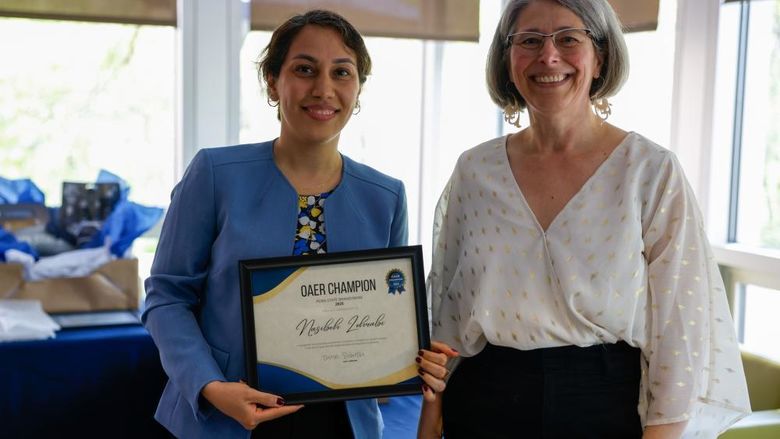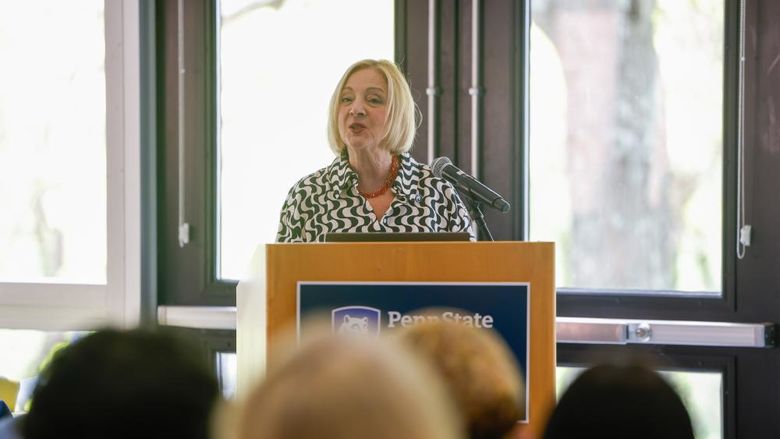
Susan Fredricks, associate professor of communication arts and sciences at Penn State Brandywine, has been honored for her research on free speech.
MEDIA, Pa. — Susan Fredricks, associate professor of communication arts and sciences at Penn State Brandywine, has received the International Award for Excellence from Information, Medium & Society – The Publishing Studies Research Network. The honor recognizes Fredricks’ research titled “Thirty Years Reflection and Implication of the Allowability of Controversial Anti-government, Revolutionary Book Publishing by Great Britain.”
According to its website, Information, Medium & Society – The Publishing Studies Research Network was founded in 2003 with the inaugural International Conference of the Future of the Book. Since then, the Research Network has expanded its scope to look beyond the book as the primary site of investigation. Today, the Research Network investigates publishing practices as distinctive modes of social knowledge production.
The International Award of Excellence is an annual award for newly published research or thinking that has been recognized to be outstanding. The winning article is selected from the 10 highest-ranked articles emerging from the peer review process.
“Being able to continue my research in these areas is essential in our current world because we are facing more and more challenges to our rights and freedoms.”—Susan Fredricks , associate professor of communication arts and sciences
An abstract of Fredricks’ work, which was published in Information, Medium & Society: Journal of Publishing Studies, stated that “This study was designed to examine a thirty-year period when Britain allowed revolutionary or anti-government books to be published. Using the International Social Survey Program (ISSP) Role of Government themed survey data from 1985, 1990, 1996, 2006, and 2016, the hypotheses on Great Britain’s citizens’ book publishing beliefs were analyzed.”
The abstract added, “This article also notes that various times have shown a downward trend of censorship that might be due to environmental factors. Implications and future research endeavors are also discussed.”
Fredricks said her field of research has been primarily focused on the cross-disciplinary study of communication, ethics, the press and human rights.
“I have long been curious about what are deemed as acceptable actions or behaviors and how those impact our human rights,” she said.
After her early research examined media coverage of controversial U.S. Sen. Joseph McCarthy during the post-World War II Cold War Era, Fredricks said she “progressed to study leadership and ethical behavior resulting from business and citizen beliefs in human rights and the curtailing of those freedoms, specifically freedom of speech and freedom of the press.”
Fredricks said the article provided a three-tiered foundation for her continued free-speech research endeavors, including: Great Britain’s well-documented history of curtailing the publication of books that negatively impacted the monarchy or government, Great Britain’s strength as a world power and its impact on the legislation of other countries, and the implication of censorship and the public’s attitude toward free speech and freedom of the press for how free people are.
“Being able to continue my research in these areas is essential in our current world because we are facing more and more challenges to our rights and freedoms, such as additional book banning, arrests for criticizing monarchies/dictatorships, as well as an increase in data surveillance,” Fredricks said. “Uncovering the citizens’ attitudes toward these means is crucial to ensuring these freedoms are maintained, enhanced and protected.”





